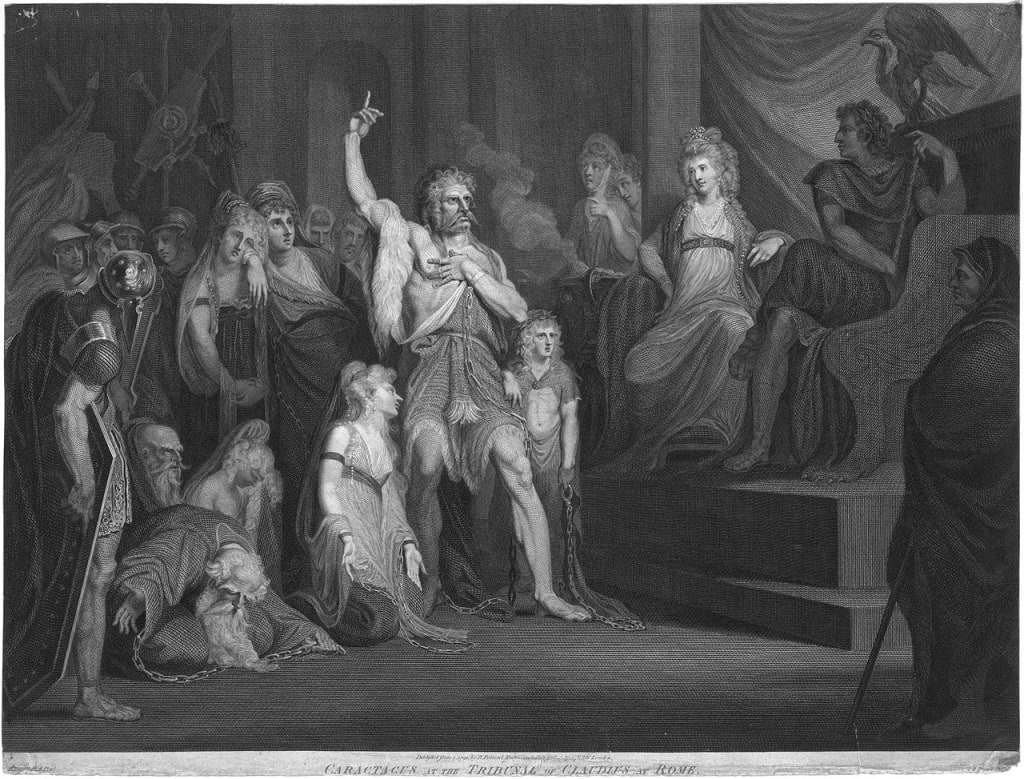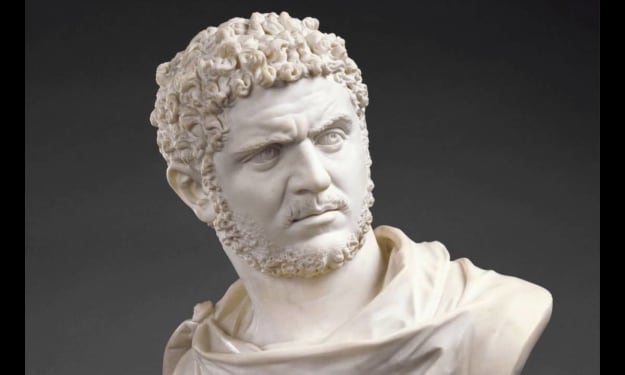Caratacus: The King who Lost Britain to the Roman Empire
But he earned the respect of his conquerors

Caratacus (sometimes spelled Caractacus) was a Celtic British king at the time of the invasion of Britain by the Romans under Emperor Claudius. Caratacus’s defeat and capture marked the true beginning of Rome’s occupation of Britain that was to last for nearly 400 years.
Caratacus – his origins and early successes
Caratacus was the son of Cunobelin, who was king of the Catuvellauni tribe and, incidentally, a possible original of William Shakespeare’s character of “Cymbeline”. The Catuvellauni tribe were very powerful and had led the earlier resistance to Julius Caesar when he had tried to conquer Britain in 55 BC. Their tribal lands were in the area to the north and west of present-day London, but they had aggressively tried to extend their influence to both east and west. The Catuvellauni capital of Camulodunum (present-day Colchester in Essex) had previously belonged to the Trinovantes tribe but the Catuvellauni moved their base there when they defeated the Trinovantes.
Caratacus first came to notice as a warrior chief in the struggle against the Atrebates tribe in what is now central southern England. Fighting alongside his uncle Epaticcus, he had some success, but when Epaticcus died in about 35 CE the Atrebates, under their king Verica, fought back. Caratacus eventually regained the upper hand and was able to depose Verica and take over much of the territory of the Atrebates.
The threat of the Roman Empire
British tribal chiefs at this time were well aware that the mighty Roman Empire was expanding across Europe and that their positions were threatened by it. A king might fancy his chances at being able to resist any future invasion of his lands, or he might consider that his best bet was to do some kind of deal with Rome to protect his territory and status. It was therefore open to any defeated leader to appeal to Rome for protection in exchange for loss of independence as a client or vassal of Rome.
This was what Verica did, and his appeal to Emperor Claudius was all that the latter needed as an excuse for a full-scale invasion. Caratacus, who had by now succeeded his father as king, therefore found that, by defeating a relatively weak enemy, he had acquired a much more formidable one. Given that none of the other British kings had the strength to oppose the Roman legions, it was left to Caratacus and his brother Togodumnus, who ruled jointly with him, to lead all the Celtic tribes in their defence of Britain.
Defeat by Rome
For a time Caratacus had some success, especially when he used guerrilla “hit and run” tactics against the Romans. However, he had no answer to the legions when it came to set-piece battles, and he lost two crucial ones at the Medway and the Thames. There is a possibility that Togodumnus had thrown in his lot with the Romans and was acting against his brother, thus leading to the latter’s defeat, but it is also possible that he was killed in battle.
At all events, Claudius was able to march into Camulodunum and turn it into his own provincial capital. Caratacus escaped and continued the resistance to Roman rule from Wales, where he led the tribes of Silures and Ordovices. However, he suffered another defeat, this time at Caer Caradoc, and was forced to flee northwards.
Arrest and exile
Caratacus had hoped to find sanctuary with Queen Cartimandua of the Brigantes but, unfortunately for him, she had already done a deal with the Romans and promptly had Caratacus arrested and handed him over. He was taken in chains to Rome in full expectation of being publicly executed when he arrived, on the grounds of having dared to oppose the might of the Roman Empire.
However, he was allowed to make a speech to the Senate, in which he made a reasoned argument for clemency along the lines that his dignity as a leader of royal descent required him to defend his people and territory rather than surrender meekly, which would have been a dishonourable thing to do. This impressed the senators, who appreciated that Caratacus had behaved in exactly the same way that they would have expected a Roman leader to behave. The Emperor granted him a pardon and the right to live in Rome with his family.
Caratacus therefore spent the rest of his life in Rome as a guest rather than a prisoner. Meanwhile, his defeat in Britain meant that his country would remain a Roman province for centuries to come.
About the Creator
John Welford
I am a retired librarian, having spent most of my career in academic and industrial libraries.
I write on a number of subjects and also write stories as a member of the "Hinckley Scribblers".






Comments
There are no comments for this story
Be the first to respond and start the conversation.